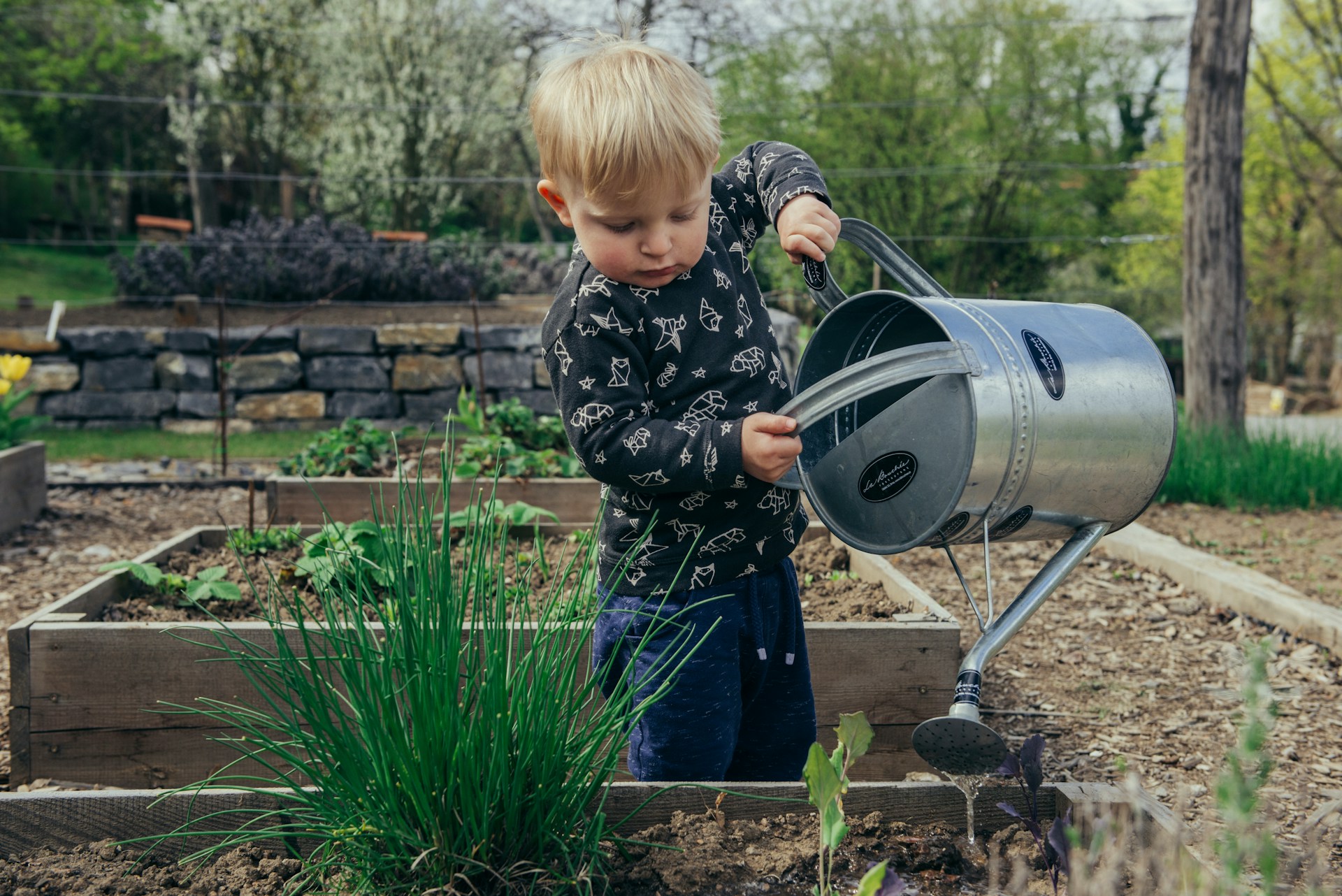In the hustle and bustle of modern life, carving out quality time for family activities becomes an essential pillar of creating lasting bonds and cherished memories. When young children are involved, engaging in activities together not only fosters strong family connections but also provides valuable learning experiences. One such activity that stands out for its multitude of benefits is cultivating a garden at home. From nurturing a love for nature to developing essential life skills and promoting healthy eating habits, a family garden can be a transformative and enriching experience for everyone involved.
Fostering a Love for Nature:
Introducing children to the wonders of gardening is like opening a door to a magical world of discovery. From the moment they plant their first seed to watching it sprout and grow into a vibrant plant, children develop a deep appreciation for the natural world. They learn about the life cycle of plants, the importance of soil, the role of sunlight and water, and the fascinating process of pollination. A family garden becomes a living classroom where curiosity blooms alongside the flowers and vegetables.
Developing Essential Life Skills:
Cultivating a garden is a hands-on experience that teaches children a host of valuable life skills. From a young age, they learn responsibility as they take on tasks such as watering plants, weeding, and tending to seedlings. These tasks instill a sense of ownership and accomplishment as they witness the fruits of their labor grow. Children also develop patience, perseverance, and problem-solving skills as they navigate the challenges of gardening, such as pest control and plant diseases.
Encouraging Healthy Eating Habits:
A family garden is a treasure trove of fresh, nutritious produce waiting to be harvested. Children are more likely to try new fruits and vegetables when they have a hand in growing them. They develop a sense of pride in the foods they have nurtured from seed to table, making mealtime an exciting and educational experience. Research shows that children who participate in gardening are more likely to have a positive attitude toward fruits and vegetables, leading to a lifelong appreciation for healthy eating.
Promoting Physical Activity and Outdoor Play:
In an age where screen time often takes precedence, a family garden provides a welcome opportunity for children to engage in physical activity and outdoor play. From digging in the soil to running between rows of plants, gardening gets children moving and active in a natural environment. It promotes sensory exploration as they touch, smell, and taste the different textures and flavors of plants. This outdoor time also fosters a sense of connection to the earth and encourages a love for the outdoors.
Creating Meaningful Family Bonding:
The shared experience of tending to a garden creates lasting memories and strengthens family bonds. Whether it’s planting seeds together, harvesting ripe tomatoes, or enjoying a picnic amidst the greenery, a family garden provides countless opportunities for quality time. Children learn from their parents and grandparents, passing down gardening knowledge and traditions through the generations. These moments of connection and shared accomplishment create a sense of belonging and unity within the family.
Educating on Environmental Stewardship:
Gardening is a powerful tool for teaching children about the importance of environmental stewardship and sustainability. They learn about the delicate balance of ecosystems, the role of beneficial insects, and the impact of human actions on the environment. By composting kitchen scraps, using natural pest control methods, and conserving water, children develop a sense of responsibility toward caring for the planet.
Instilling a Sense of Wonder and Curiosity:
Above all, a family garden ignites a sense of wonder and curiosity in children as they observe the miracles of nature up close. They witness the transformation of a tiny seed into a towering sunflower, the emergence of butterflies from chrysalises, and the bustling activity of bees pollinating flowers. These moments of awe and discovery foster a lifelong love for learning and exploration.
In conclusion, cultivating a garden at home as a family activity offers a wealth of benefits that extend far beyond the boundaries of the garden plot. It nurtures a love for nature, develops essential life skills, promotes healthy eating habits, encourages physical activity, strengthens family bonds, educates on environmental stewardship, and instills a sense of wonder and curiosity. Whether you have a sprawling backyard or a few pots on a balcony, a family garden is a sanctuary of growth, learning, and connection for everyone to enjoy.
